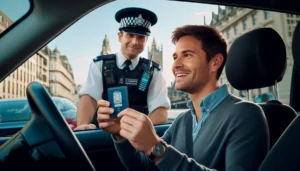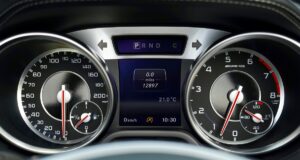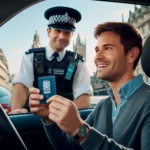DVLA offers an extensive list of ‘notifiable’ medical conditions that you have to inform your DVLA about. The DVLA has a complete list of medical ailments further down this page. If you suspect that your medical condition might impact your driving ability and you’re not able to drive any longer you may opt to surrender your driving license.
What should you do you inform DVLA about a medical issue?
You can inform your DVLA regarding your health conditions by submitting the appropriate form. This can be completed
online at Gov.uk
or on paper, and then posted or on paper, and then posted to or on paper and posted to DVLA.
There are a variety of forms to suit different medical conditions and whether you operate a car or an lorry, bus or coach. The complete list of forms on the end on this page.
Do I have to report an individual to the DVLA to report medical issues?
You may report a medical issue on their behalf, if they are unable to make the report themselves.
If you want to report a medical issue on someone else, make contact with the DVLA via email, webchat phone, or via mail. There are a variety of ways to report a medical condition.
Contact details are available contact details here Gov.uk (external hyperlink).
How long will DVLA medical queries will it take?
The length of the DVLA’s review of a medical inquiry varies from case to instance.
After you have informed the DVLA regarding the medical condition or disability you suffer from and the DVLA will look over the application and determine whether you require an updated driving licence Do you need a shorter driving licence like one that lasts from one to five years to alter your vehicle with specific controls to suit your needs better to surrender your driving license and stop driving. To determine which feature is accurate option for you and your needs, the DVLA could call your doctor, schedule an examination, or ask you to undergo an assessment of your driving such as an eye test or an examination for driving. If you think that a Motability vehicle would suit you better, you must determine whether you’re eligible to apply for it.
Renewal of your driving license
If your doctor has advised you to not drive for a period of three or more months, or if believe you are suffering from a medical problem that is impacting your ability to drive safely and safely, you might want to give up your driving license.
In this instance you’ll need to fill out an
“Declaration of voluntary surrender for medical reasons Form
If you own a vehicle or the
VCERT form
If you are a driver of buses, a lorry or a coach and wish to give up your driving license. After you’ve downloaded the form and completed the form, send it to: Drivers Medical Group, DVLA, Swansea, SA99 1TU. If you’ve been told by your physician not to drive, but you wish to drive on it is necessary to notify the DVLA about your medical condition so they can determine the extent to which you’re able to drive. You’re not permitted to drive until the DVLA evaluate your application. You are only allowed to drive when you and the DVLA says it’s OK to. If you want to give up your license and do not wish to have your vehicle You can easily promote and
Re-applying to get a driving license in the event of a medical condition
If the doctor you see is satisfied with your driving ability you can get your driving license reinstated if you decide to give up your driving licence, as your doctor will be able to support getting back on the road. You might require to favor proof that you’re healthy enough to drive again. The DVLA will inform you whether they need the details from you.
The list of medical conditions as well as the form that must be completed to inform the DVLA
This is a complete list of medical conditions that must be reported to DVLA along with the application form to forward an email to DVLA.
The kind of form you’ll have to fill out will be based on the medical condition you’re suffering from. *
Formula AUD1 for lorry drivers bus and coach driver
Deafness, Usher syndrome or any other disorders *
B1 form for automobiles and motorbike drivers. B1V form to lorry, bus and coach driver
Acute subdural haematoma aneurysms, arachnoid cysts, the Arnold-Chiari malformation and arteriovenous abnormality blood clots and brain abscess encephalitis or cyst, brain tumor, brain injury and burr hole surgery. cerebral paralysis, chronic subdural haematoma and head injury, hydrocephalus hypoxic brain damage Lewy body dementia. Medulloblastoma meningioma, pituitary tumor, injuries to the head, brain bleeding or transient global amnesia VP shunt or similar diseases *
Form BP1 for cars and motorbike riders / the BP1V form for lorry drivers bus and coach driver
Blood pressure issues High blood pressure (hypertension) or any other issues *
C1 form for car and motorbike riders / C1V form for lorry drivers, bus and coach driver
Cancer, Hodgkins lymphoma, leukaemia cancer, lymphoma, lung cancer malignant melanoma and other conditions related to them *
Form CG1
• Alzheimer’s disease cognitive issues or other disorders *
CN1 form for automobiles and motorbike drivers. Form CN1V for lorry bus and coach driver
– muscular dystrophy, ataxia as well as Friedrich’s ataxia. Guillain Barre syndrome(Huntington’s Disease, motor neurone disease many myasthenia gravis, ataxia or other conditions related to it *
Form DEFIB1
– ventricular and atrial defibrillators or other concomitant conditions
Form DG1 for car and motorbike drivers. the DG1V form for lorry bus and coach driver
– for drug problems *
DIAB1 form for car and motorbike riders / VDIAB1GEN form or a form called VDIAB1SG for bus, lorry and coach drivers
– hypoglycaemia, diabetes or any other conditions related to it *
DIZ1 form to be used by cars and motorbike drivers. DIZ1V form to lorry, bus and coach driver
– labyrinthitis, dizziness, vertigo, or any other conditions related to it. *
Formula DR1 for cars and motorbike drivers. Form DR1V for lorry bus and coach driver
For alcohol-related problems
Formula FEP1 for car and motorbike riders / FEP1V form for lorry drivers, bus and coach driver
Convulsions, seizures, fits, myoclonus, small mal as well as grand mal blackouts, or the fainting (syncope) *
G1 form for car and motorbike riders / G1V form for truck, bus and coach driver
– AIDS ankylosing spondylitis arthritis, brachial-plexus learning difficulties, cancer paraplegia, limb impairment spinal issues or any persistent issue that may affect mobility
H1 form for automobiles and motorbike drivers. Form VOCH1 for lorry, bus and coach driver –
aneurysm, Brugada syndrome, arrhythmia, congenital heart disease, heart palpitations, Long QT syndrome, Marfan syndrome, pacemakers, tachycardia, Wolff-Parkinson-White syndrome or other related conditions *
K1V form for lorry drivers, coach and bus drivers
Kidney dialysis issues or other concomitant conditions
M1 form for automobiles and motorbike drivers. M1V form for truck, coach and bus drivers
Anxiety, agoraphobia bipolar disorder (manic depression) eating disorders, depression Korsakoff’s Syndrome, obsessive-compulsive disorder (OCD) and personality disorder, paranoid schizophrenia and post-traumatic depression (PTSD) psychosis schizophrenia, psychotic depression or schizophrenia, as well as other disorders *
Form PAH1 for car and motorbike drivers. PAH1V form for lorry drivers, coach and bus drivers
*
Form PK1 for car and motorbike drivers. Form PK1V for lorry bus and coach driver
– Parkinson’s disease as well as other related diseases *
Formula SL1 for cars and motorbike drivers. the SL1V form for lorry drivers coaches and bus drivers
For sleep disorders such as cataplexy, narcolepsy sleepiness, obstructive sleep the apnoea, or sleep apnoea syndrome
Form STR1 for car and motorbike riders / Form STR1V for lorry bus and coach drivers
– stroke, intracerebral hemorrhage or any other condition that is related *
V1 form for car and motorbike riders / V1V form for truck, bus and coach driver
The most common causes are blepharospasm and diplopia (double vision) (double vision), glaucoma, Nyctalopia (night blindness) Retinitis pigmentosa visual field defects, and related disorders
If you’re still not sure the form you’ll need to fill in, then you must get in touch with the DVLA to ensure that is the correct procedure for you. You can send an email to the DVLA via Gov.uk, talk to them via chat on the web or contact the DVLA’s medical enquiries department on 0300 790-6806 between 8:00 am until 7:00 pm from Monday to Friday, and from 8:00am and 2:00pm on weekends. You may also write to the DVLA on the following address: Doctors’ Medical Information DVLA, Swansea, SA99 1TU













